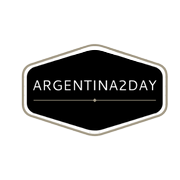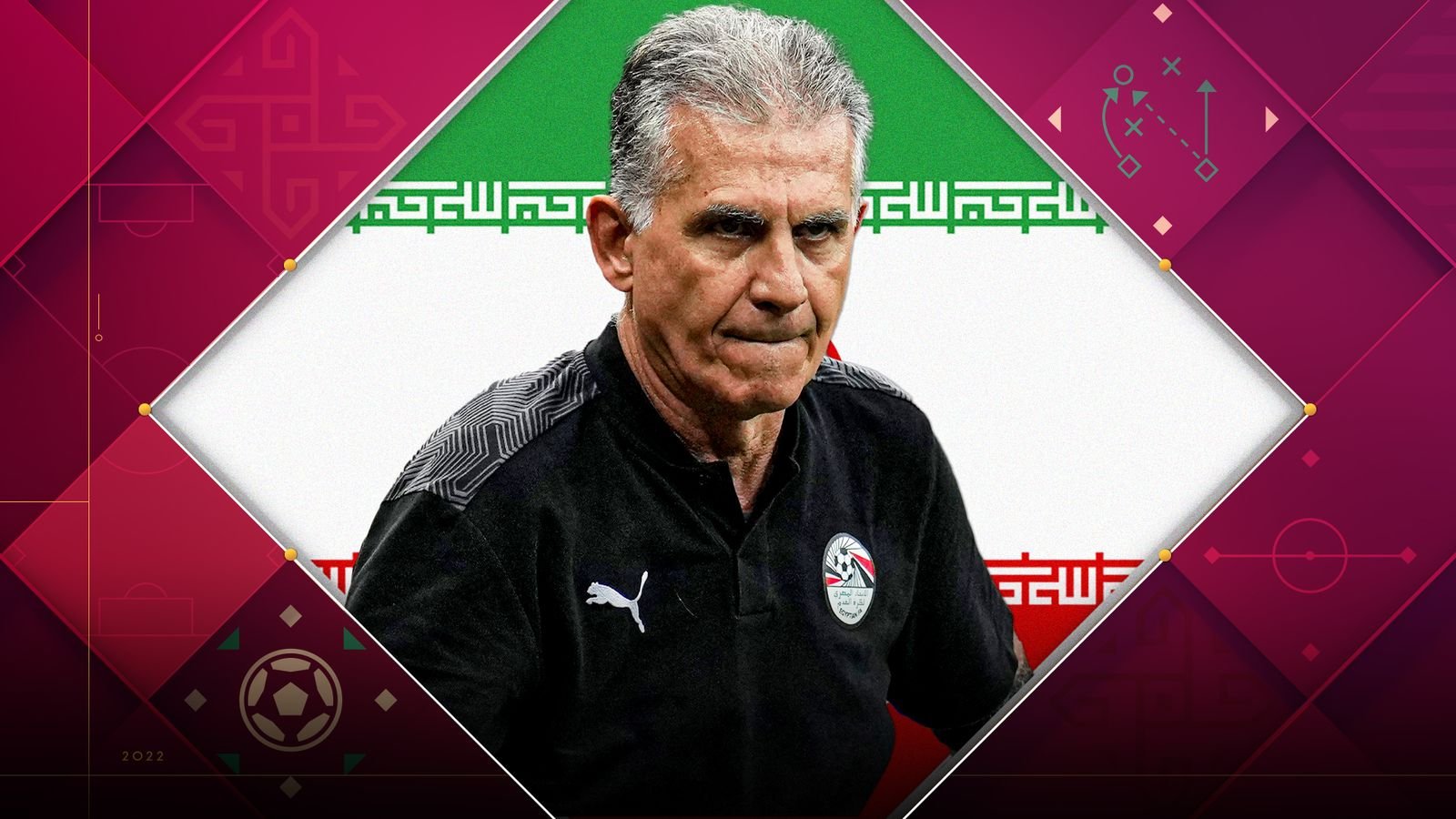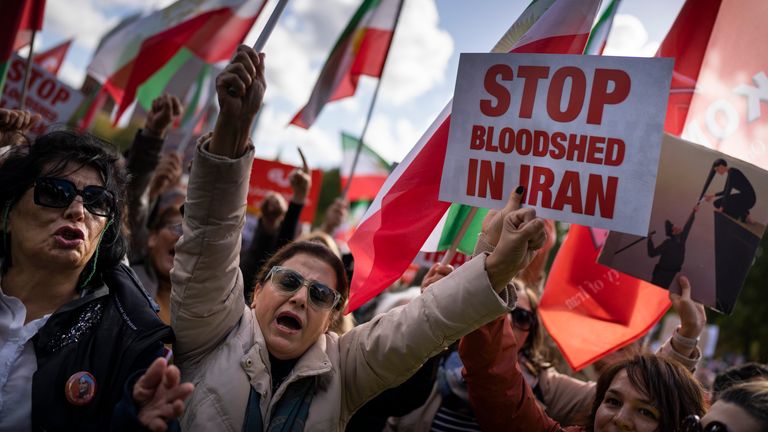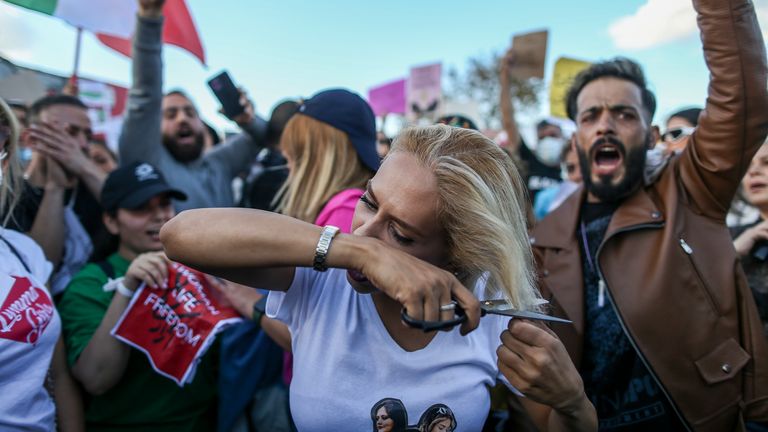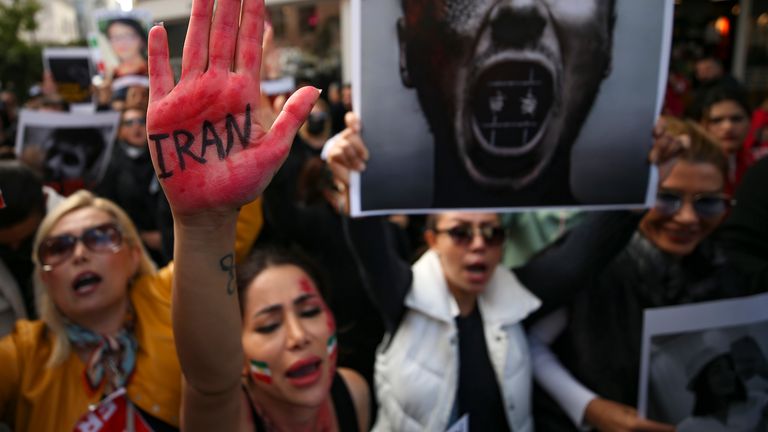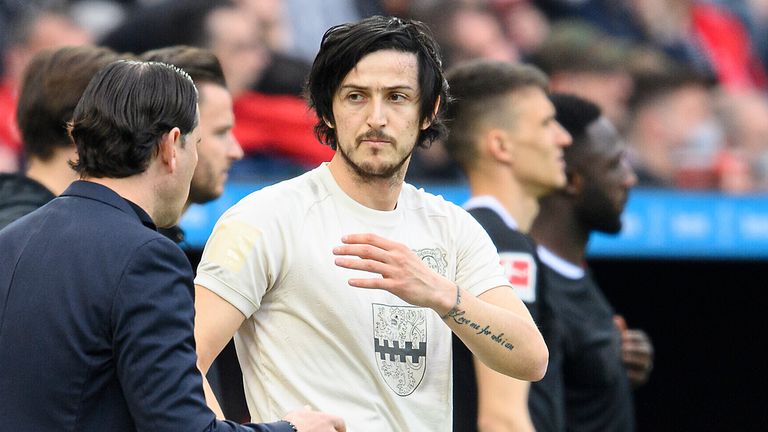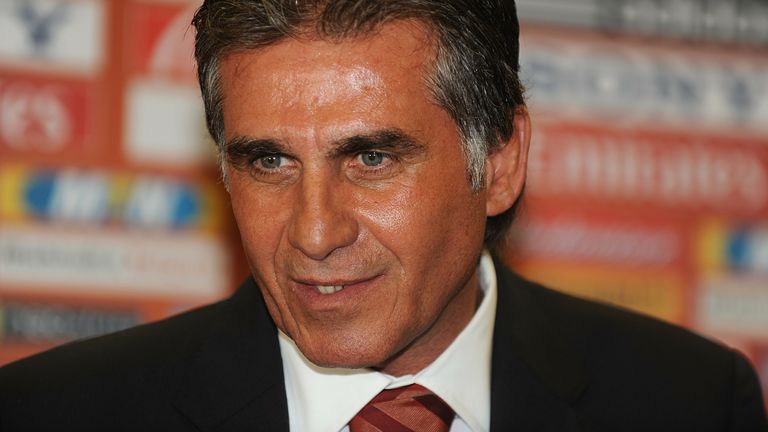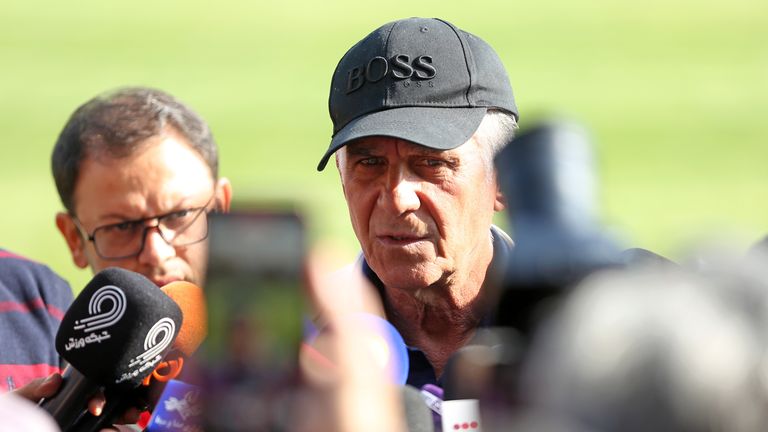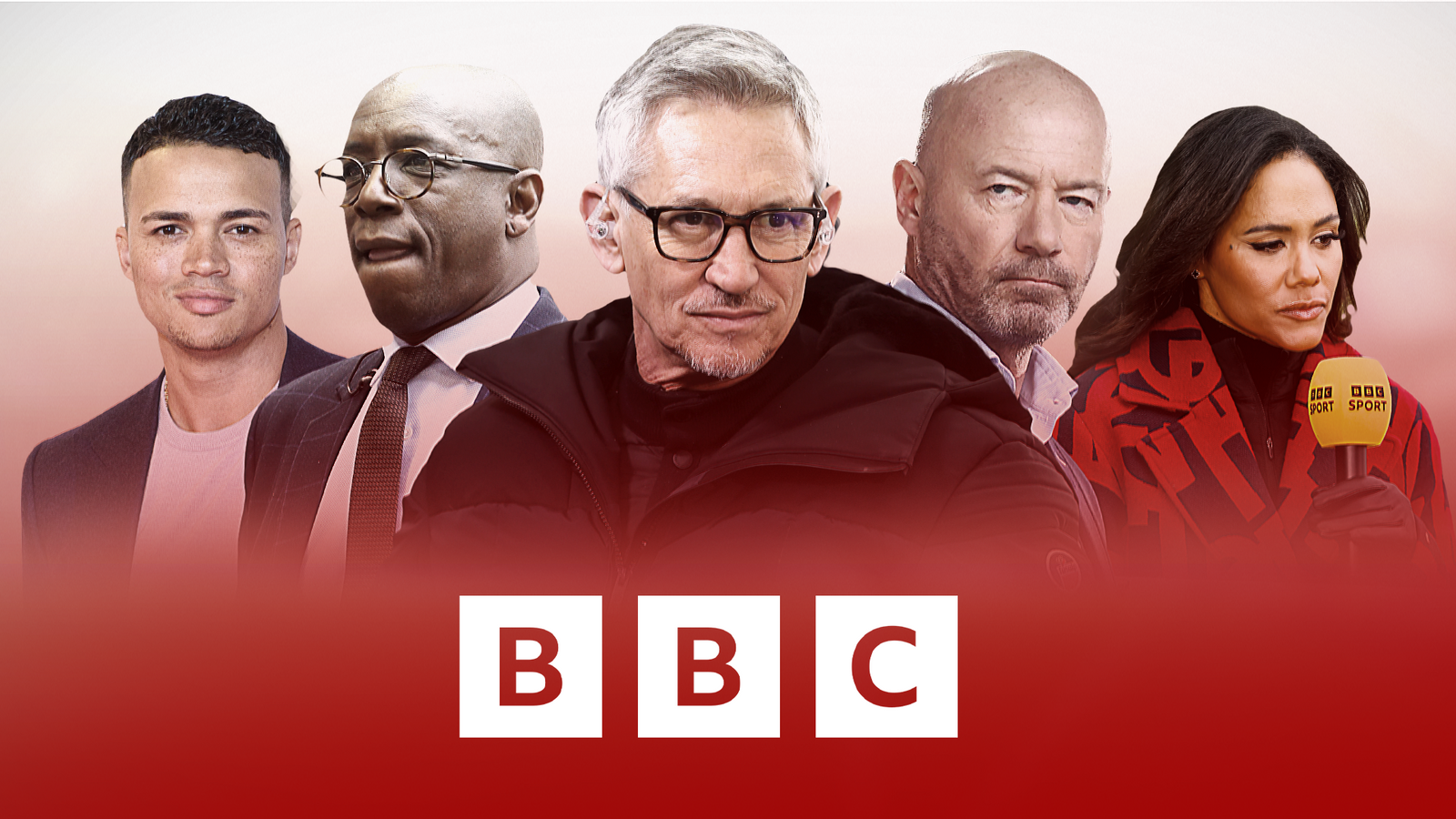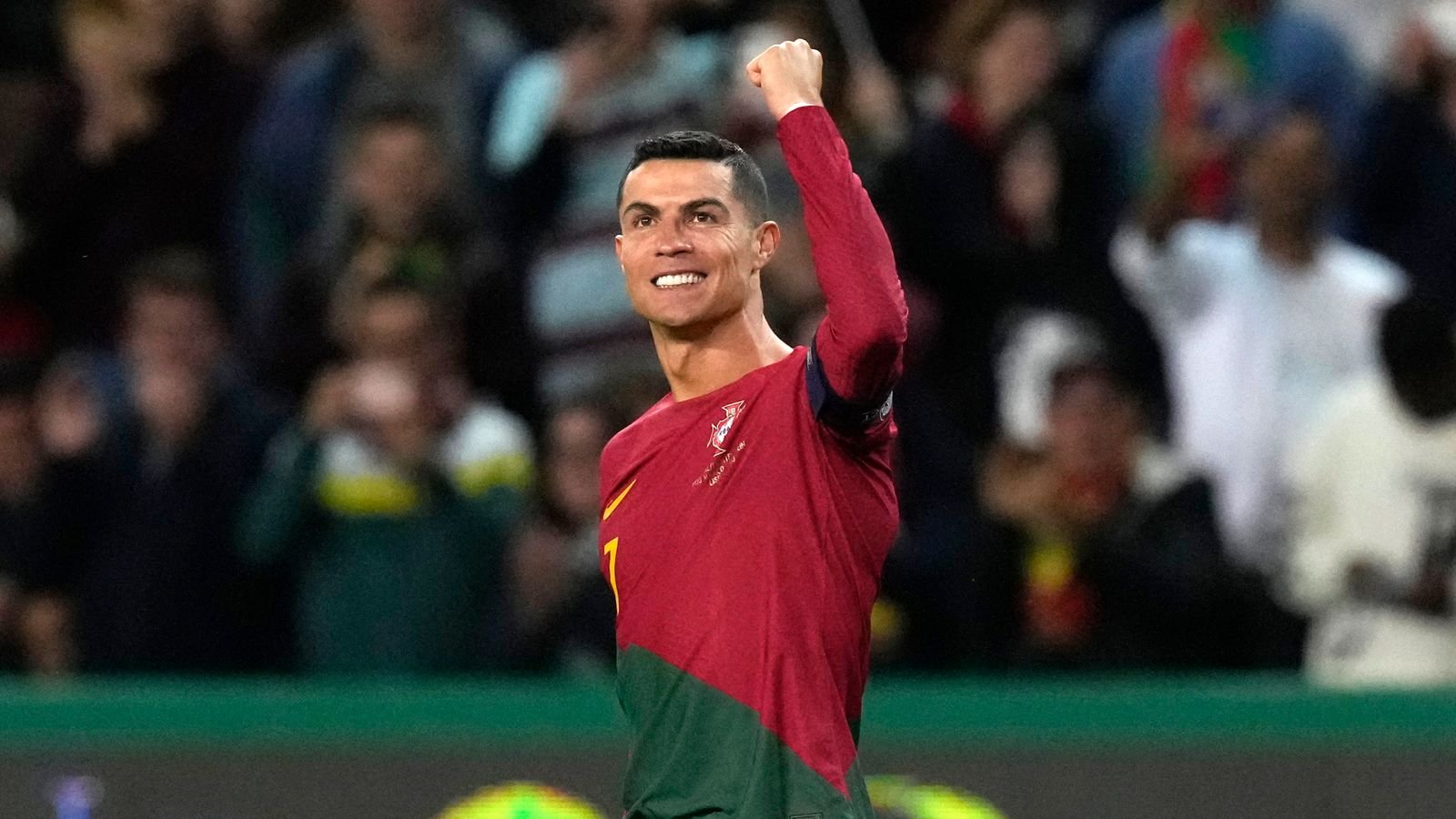[ad_1]
Iran begin their World Cup campaign on Monday under the glare of a political spotlight. While England’s players will be focused solely on performance, Iran’s will have much more on their minds. Some argue they should not be there at all.
Their participation comes at a time of immense turbulence in Iran, where nationwide protests triggered by the death of 22-year-old Mahsa Amini in police custody in September have been met with a bloody response by the ruling regime.
Amini died after being arrested by the regime’s so-called morality police for an alleged breach of their Islamic dress code, her plight intensifying long-standing feelings of anger and resentment around the oppression of women’s rights in the country.
At least 348 protestors have been killed so far, according to human rights monitoring groups, while a further 15,900 have been detained. Earlier this week, a court in Tehran, Iran’s capital, issued the first death sentence to a person arrested for taking part.
Iran’s involvement in the World Cup feels incongruous to many given the context. There have even been calls for them to be barred from the tournament. But the focus is now turning to how their players will act in Qatar amid anticipated demonstrations off the pitch.
“As you may already know, football has an incredibly huge following in Iran,” Sina Saemian, an Iranian football journalist and contributor to the Gol Bezan podcast, tells Sky Sports.
“The country is football-obsessed but when something like this is taking place, I think the focus and concentration of people goes elsewhere. Now, football has become a platform for people to raise their concerns and make sure their voices are heard.”
Recent examples hint at widespread support for the protests.
Earlier this month, players from Esteghlal, one of the biggest clubs in Iran, declined to celebrate after winning the country’s Super Cup, instead remaining straight-faced, their arms folded in a gesture of defiance, as they were presented with the trophy.
Iran’s national-team players have expressed similar feelings.
Saemian insists the wearing of black jackets over their kits before the recent friendly against Senegal was not the orchestrated act of solidarity it was reported as – “those jackets never featured the Iranian badge to begin with,” he says – but most players have refused to sing the national anthem and many have taken to wearing symbolic black wristbands.
“They have used gestures to show which side they are on, but I think the frustration from some sections of the protestors is that it is not enough,” says Saemian. “It’s not for me to say whether it is or isn’t, but that is what they believe.
“They believe the players should be a little more active in speaking directly in support of the protestors rather than using gestures like the black wristbands.”
Some players have previously voiced support for the regime.
Midfielder Mehdi Torabi, who could be seen signing the national anthem while others abstained ahead of last week’s friendly with Nicaragua, once celebrated a goal for Iranian club Persepolis, during another period of protests in the country in 2019, by revealing a slogan under his shirt which read: “The only way to save the country is to obey the leader.”
But those who wish to speak out in support of the protestors rather than the regime risk putting themselves and their loved ones in danger.
“You have someone like Ali Karimi, who played for the Iranian national team and Bayern Munich in the 2000s,” says Saemian. “He has been very, very vocal against the regime from day one.
“He has escaped the country. His assets, from what I understand, have been seized. And I have no doubt that if he was ever to return to the country, he would be arrested.”
Others, such as Hossein Mahini, who represented Iran at the 2014 World Cup, already have. The defender was recently detained, according to Saemian, for airing views on social media in support of the protests.
Of Iran’s current players, Bayer Leverkusen’s Sardar Azmoun is the most prominent to have spoken out.
“At worst, I’ll be kicked out of the national team, which is a small price to pay for even a single strand of Iranian women’s hair,” he wrote on Instagram, ignoring the Iranian FA’s reported instruction not to comment publicly on the protests. “Shame on you for easily killing the people… Long live Iranian women.”
The comments put his place at the World Cup in doubt, with one report claiming Carlos Queiroz, back for a second spell as Iran’s head coach, was under pressure from the Iranian football federation not to select him.
Azmoun later deleted the post, issuing an apology before his eventual inclusion in the squad, but his comments were not the only recent example of apparent dissent from a current footballing figure in the country.
Saeed Piramoon, a player for Iran’s beach soccer team, celebrated his goal in Iran’s win over Brazil at the Beach Soccer Cup earlier this month by imitating cutting his hair – a move interpreted as a symbol of support for women’s rights and one which prompted a response from the country’s football federation.
“People who have not followed professional and sports ethics… will be dealt with according to the regulations,” they said in a statement. “As per regulations of the Islamic Republic of Iran and the Olympic Code of Ethics and the rules of FIFA, political behaviour must be avoided in sports fields.”
Queiroz, for his part, has insisted his players are “free to protest” during the World Cup if they wish, as long as they conform with tournament regulations and the “spirit of the game”, but it remains to be seen how far they go – if indeed they do.
“When I think about myself, in a privileged position sitting her in Manchester, I think we need to be a little bit careful in terms of what we demand from people who are actually on the ground because we are never going to have the full picture in terms of what they are going through and the threats that are going to be made,” says Saemian.
“Some of them still choose to go ahead and speak, and they should be applauded and encouraged to do so, but I personally feel we should not take a stance that they need to talk, they need to do ‘X’, ‘Y’ or ‘Z’, because we are never going to have the full picture.”
As for Iran’s former players, Karimi is not the only one to have come forward in opposition.
This week, Ali Daei and Javad Nekounam, Iran’s two most-capped players and national icons, rejected invitations from FIFA to attend the tournament in a show of solidarity with the protestors.
It is becoming increasingly difficult for the regime to censor the groundswell of opinion in favour of the protests and it may become borderline impossible during a World Cup in which demonstrations are expected to take place inside and outside of Iran’s games.
“So far in Iran, it’s been a mix of either not reporting the protests, or, when they do, finding something that discredits them, then running with that as a way of showing Iranians inside the country that people protesting outside the country don’t have their interests at heart,” explains Saemian.
“I’m more intrigued to see, if the players don’t sing the national anthem, how they respond to that. Will they still show the game live as it goes on? Or will they cut to other footage of the stadium or the fans while that is taking place?”
It is partly for that reason that Saemian feels it is right for the national team to be present at the tournament.
Queiroz refused to engage with questions on women’s rights in his most recent press conference, but the spotlight is unavoidable.
“The campaign for Iran to be banned from the World Cup has been a dividing topic amongst Iranians as a whole, not just football fans,” says Saemian.
“I’m on the side that the team doesn’t need to be banned, but I think it is equally important that we do not dismiss what the campaign represents and the message it is trying to get across.
“That message is what we all want – to raise awareness and to echo the voices of those inside Iran.
“I personally think that by allowing the national team to participate in events like the World Cup, not only do you allow the players a platform to show where they stand, but you will see people protesting and making sure almost every media outlet covers it.”
So, while Iran begin their World Cup campaign with the aim of reaching the knockout stage for the first time in the country’s history, eyes and minds are likely to be elsewhere, on a political struggle which has become intertwined with sport.
Follow England vs Iran live on Sky Sports’ digital platforms from 9am on Monday; kick-off 1pm
[ad_2]
Source link
